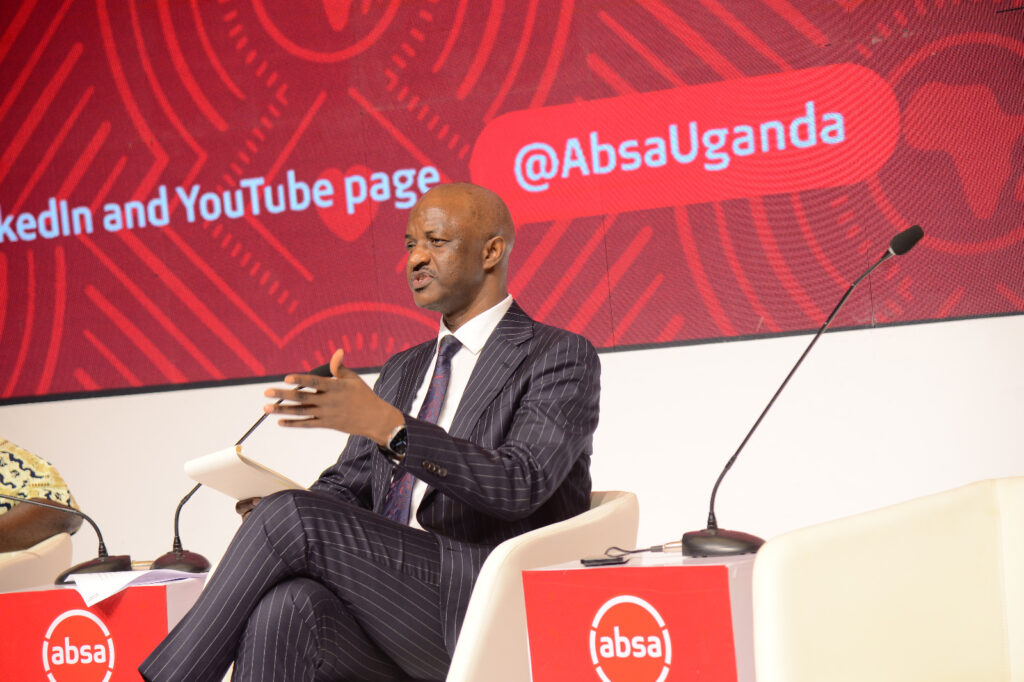Ramathan Ggoobi, the Ministry of Finance Permanent Secretary and Secretary to Treasury, has outlined the government’s strategy for building a USD 500 billion economy by 2040.
According to Ggoobi, the journey to achieving this goal will require discipline, consensus, and a focus on key areas such as agro-industrialization, tourism, mineral development, and science and technology innovation (ATMS).
Speaking at the Absa 2025 Post Budget Dialogue at Kampala Serena Hotel, Ggoobi emphasized the importance of building consensus and implementing plans correctly, at the right time.
“We must build that discipline of consensus; that discipline of getting teams to work; people knowing that you are nothing without others,” he said.
Ggoobi also highlighted the need for skilling and investing in critical areas demanded by the market. “There’s no country that has transformed with so many people who are unemployable,” he said, noting that many young people in Uganda are not only unemployed but also unemployable.
The 2025/26 budget has allocated UGX 1.4 trillion to clear domestic arrears, which is expected to provide liquidity to businesses and ease the cost of doing business.

Michael Segwaya, the Executive Director/Chief Finance Officer at Absa Bank, said the UGX 72.37Trillion Budget for Financial Year 2025/26 has provided UGX 1.4Trillion to clear domestic arrears, away from the last financial year’s UGX 200b, and this will provide liquidity for businesses.
“This is a good gesture, but looking at the balance sheet, we should be doing more for years to come to try and support the business community because it eases the cost of doing business, and this also helps the Government,” he stated.
Allan Allan Ssenyondwa – Economist, Policy and Advocacy Manager at Uganda Manufacturers Association (UMA) saidthe budgetary allocation towards domestic arrears will provide liquidity to businesses.
Garry Kizito, the Assistant Commissioner Compliance at Uganda Revenue Authority (URA) said the Government in the next financial year has put in measures to address bottlenecks to business growth, including formalisation.
Absa Bank Managing Director, David Wandera, said budgets must ultimately translate into impact, in jobs created, arrears cleared, and opportunities unlocked for households and entrepreneurs alike.
He highlighted the role of financial institutions in translating fiscal policy into real economic outcomes by funding agriculture, trade, and SMEs, and enabling business resilience beyond capital.









